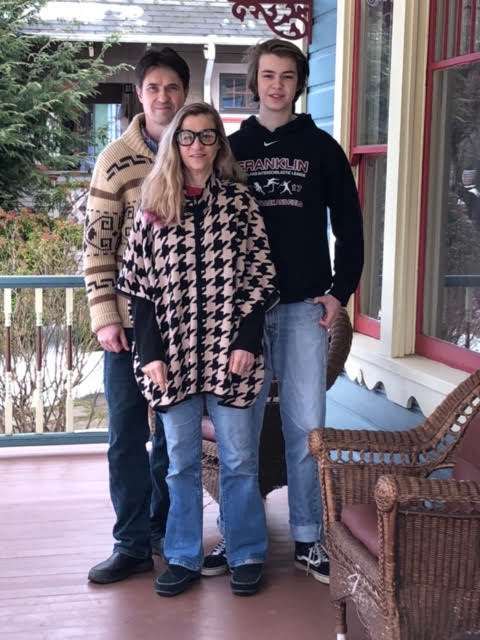Committee Meeting
The March SNA Community Safety & Livability meeting hosted Andy Miller, Executive Director of Human Solutions. Human Solutions was founded in 1988 to provide home weatherization and utility assistance for seniors and low-income households. Over the last 25 years, the organization’s mission has expanded to partner with, invest in, and advocate for people and communities impacted by poverty so that they can achieve long-term housing and economic security.
Andy Miller spoke of the well-researched idea that the most significant factor in a child’s lifetime trajectory is the zip code into which they are born. With this understanding, Human Solutions focuses on fighting intergenerational poverty at the neighborhood level, with a focus on eastern Multnomah County.
Human Solutions responds to immediate crises – operating three emergency shelters and providing rent assistance, eviction prevention, and utility assistance. The organization provides affordable housing, with over 650 apartments and over 200 more currently in development. Their housing advocacy is paired with job and career counseling and skills training – providing critical resources for people transitioning from public assistance and for those experiencing re-entry from incarceration and homelessness.
Mr. Miller notes that housing insecurity is a pervasive impact of our nation’s racist past and present. Black and brown people have been denied generations of wealth and opportunity — denied actual housing opportunities. Even though we’ve changed many of the laws that were in place for those generations, we are left dealing with profound consequences of insecurity. “For folks sleeping outside, you are 50% more likely to have a tent if you are White.”
Andy Miller also noted that he’s not a fan of shelters; they are an important stop-gap resource, but shouldn’t be more than a stepping stone to more stable housing. However, he notes that when he started working with Human Solutions, the average shelter stay was three weeks. The average now is six to twelve months. There just isn’t enough affordable housing for folks to transition into.
The work Human Solutions does is working; there just aren’t enough resources and people in need are being underserved. Millar notes that, “For every one person we help, there are nine we have to turn away.”
Why are there so many people who need the services that Human Solutions provides? Opinions about the causes of homelessness and housing insecurity vary widely; some blame addiction, mental illness, laziness, or bad luck. Human Solutions identifies poverty as a root cause – the significant gap between the high cost of housing and the low values of income. For example, in Portland, the hourly wage required to afford a studio apartment is $22.92 while the median hourly wages in the largest employment sectors – food & bar service, retail, and home health care – range from $12.47 to $13.74.
Andy wrapped up his presentation with an inspiring case study from Helsinki. Similar in population to Portland, Helsinki implemented universal basic income and a Housing First policy that provides unconditional housing. Finland is the only EU country where homelessness rates are falling.
The Equal Times website describes the simple idea at the foundation of Finland’s Housing First policy, “… everyone is entitled to somewhere to live, even people with complex psychosocial, health and financial issues such as addiction or poor credit ratings. The theory is that it is easier to tackle the multiple issues often faced by a person experiencing homelessness if that person has a stable home.”

